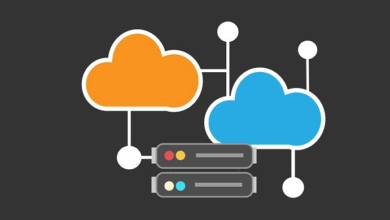How to Choose the Best Pharmacy

Finding the right pharmacy is more than just convenience; it’s about ensuring you have access to reliable, quality healthcare. With so many options available, choosing the best pharmacy can seem overwhelming. Whether you’re looking for a local, independent pharmacy or a national chain, there are several factors to consider to ensure you receive the best service and care possible.
Understanding Your Needs
Before you start looking for a pharmacy, it’s important to understand your specific needs. Are you managing a chronic condition that requires frequent prescriptions? Do you need a pharmacy that offers specialized services like compounding or vaccinations? Perhaps you’re looking for a pharmacy with extended hours or one that provides delivery services. Knowing what you need will help you narrow down your options and find a pharmacy that meets your requirements.
Location and Accessibility
One of the first things to consider is the location of the pharmacy. Is it close to your home or workplace? Is it easy to get to, with ample parking or access to public transportation? A conveniently located pharmacy can make it easier to pick up prescriptions and seek advice from pharmacists without disrupting your daily routine.
However, convenience shouldn’t be the only factor. It’s also worth considering whether the pharmacy offers online services, such as prescription refills and delivery. In today’s digital age, having the option to manage your prescriptions online can save you time and provide greater flexibility, especially if you have mobility issues or a busy schedule.
Reputation and Trustworthiness
The reputation of a pharmacy is crucial when it comes to trusting them with your health. Look for a pharmacy that is known for its reliability, accuracy, and customer service. You can check online reviews, ask for recommendations from friends and family, or consult healthcare professionals for their opinions.
A pharmacy’s accreditation is also a good indicator of its trustworthiness. In the United States, look for pharmacies that are certified by the National Association of Boards of Pharmacy (NABP) or other relevant authorities. This certification ensures that the pharmacy adheres to high standards of practice and safety.
Availability of Medications
Another critical factor is the availability of medications. The best pharmacy should consistently stock the medications you need. Some pharmacies might specialize in certain types of medications or have better access to specific drugs, especially if they work closely with certain healthcare providers or pharmaceutical companies.
It’s also important to consider whether the pharmacy carries generic options, which can be a more affordable alternative to brand-name medications. If you require compounded medications, ensure the pharmacy has the capability and expertise to prepare them safely.
Pharmacist Expertise and Customer Service
A pharmacy is only as good as the pharmacists who work there. Pharmacists are healthcare professionals who play a vital role in managing your medications, offering advice on drug interactions, and providing valuable health information. When choosing a pharmacy, consider the expertise and approachability of the pharmacists. Are they willing to take the time to answer your questions? Do they provide personalized advice tailored to your health needs?
Good customer service also extends beyond the pharmacists. The entire pharmacy staff should be friendly, helpful, and efficient. Long wait times, rude staff, or consistently poor service are red flags that you might want to consider another pharmacy.
Services Offered
Different pharmacies offer a variety of services that can enhance your healthcare experience. Some of these services might include:
- Prescription delivery: Convenient for those who cannot easily visit the pharmacy in person.
- Medication synchronization: Helps manage multiple prescriptions by aligning refill dates.
- Vaccinations: Many pharmacies offer flu shots and other immunizations.
- Health screenings: Services like blood pressure checks, cholesterol testing, or diabetes management.
- Compounding: Customized medications for patients who need specific formulations.
Evaluate which of these services are important to you and ensure that the pharmacy you choose offers them.
Insurance Compatibility
Not all pharmacies accept the same insurance plans. Before committing to a pharmacy, make sure they are in-network with your insurance provider. This will help you avoid unnecessary out-of-pocket expenses. Additionally, verify that the pharmacy handles insurance claims efficiently, reducing the likelihood of delays or errors in processing your prescriptions.
Cost and Pricing Transparency
Medication costs can vary significantly from one pharmacy to another. It’s essential to choose a pharmacy that is transparent about their pricing and offers competitive rates. Some pharmacies may offer discount programs, loyalty cards, or membership benefits that can help lower the cost of your medications. Additionally, ask about the cost of common over-the-counter products, as these can also vary widely.
If you’re paying out of pocket, don’t hesitate to ask the pharmacist if there are more affordable alternatives or generic versions of your medication. A good pharmacist will be willing to help you find ways to manage your medication costs without compromising on quality.
Privacy and Confidentiality
Your health information is sensitive, and it’s important that the pharmacy you choose respects your privacy. Ensure the pharmacy has policies in place to protect your personal and medical information. This includes how they handle prescriptions, consultations, and any other interactions you have with them. A reputable pharmacy will have clear protocols for maintaining confidentiality and will be compliant with health privacy laws, such as the Health Insurance Portability and Accountability Act (HIPAA) in the United States.
Technology and Innovation
In today’s fast-paced world, technology plays a significant role in healthcare. Pharmacies that embrace technology can offer a more seamless and efficient service. For example, some pharmacies provide mobile apps for easy prescription refills, medication reminders, and access to your prescription history. Others may offer telepharmacy services, allowing you to consult with a pharmacist remotely.
Choosing a pharmacy that uses up-to-date technology can make managing your medications easier and more convenient, especially if you have complex health needs or require regular communication with your pharmacist.
Evaluating the Pharmacy’s Environment
The physical environment of the pharmacy is also something to consider. Is the store clean, well-organized, and welcoming? A well-maintained pharmacy reflects the care and attention the staff provides to their customers. It also ensures a more pleasant experience when you visit.
Pay attention to how the pharmacy is set up. Is it easy to navigate? Are the products clearly labeled? A cluttered or chaotic environment can be frustrating and may indicate deeper issues with how the pharmacy is managed.
Consistency and Reliability
Consistency is key when it comes to your health. You need a pharmacy that is reliable, with a track record of accurately filling prescriptions and providing medications on time. Consistency also applies to the advice and care you receive from the pharmacy staff. Over time, developing a relationship with your pharmacist can lead to better healthcare outcomes, as they become familiar with your medical history and can provide more personalized care.
Emergency Services
Sometimes, emergencies happen, and you may need medication outside of regular business hours. Some pharmacies offer 24-hour services or have an on-call pharmacist available for urgent needs. While this may not be a necessity for everyone, it can provide peace of mind knowing that help is available when you need it most.
Comparing Chain vs. Independent Pharmacies
When choosing the best pharmacy, you might find yourself deciding between a large chain pharmacy and an independent, locally-owned one. Both have their advantages.
Chain pharmacies often have multiple locations, extended hours, and robust online services. They may also offer a wider range of products and services. However, they can sometimes lack the personal touch that smaller, independent pharmacies provide.
Independent pharmacies, on the other hand, are often more community-focused and may offer more personalized service. The staff at an independent pharmacy might take the time to get to know you and your health needs better than at a larger chain. However, they might have more limited hours and fewer locations.
The Role of Compounding Pharmacies
If you require specialized medications that aren’t available in standard formulations, a compounding pharmacy might be the best choice for you. Compounding pharmacies create customized medications tailored to your specific needs, such as allergy-free formulas or specific dosage forms. If this is important to you, ensure that the pharmacy you choose is accredited and experienced in compounding.
Reviewing Customer Feedback
Finally, one of the best ways to choose a pharmacy is to review customer feedback. Online reviews, testimonials, and word-of-mouth recommendations can provide valuable insights into the experiences of other customers. Look for feedback on the pharmacy’s reliability, customer service, accuracy in filling prescriptions, and overall satisfaction. Keep in mind that no pharmacy will have a perfect record, but a pattern of positive or negative reviews can give you a good sense of what to expect.
Conclusion
Choosing the best pharmacy is an essential step in managing your health and well-being. By considering factors such as location, reputation, pharmacist expertise, services offered, and insurance compatibility, you can find a pharmacy that meets your needs and provides the quality care you deserve. Remember, the right pharmacy is more than just a place to pick up medications—it’s a partner in your healthcare journey.
FAQs
What should I look for in a pharmacy?
Look for factors such as location, reputation, pharmacist expertise, services offered, insurance compatibility, and pricing transparency. A good pharmacy should meet your health needs, provide reliable service, and maintain your privacy.
Why is pharmacist expertise important?
Pharmacist expertise is crucial because pharmacists play a key role in managing your medications, offering advice on drug interactions, and providing health information. A knowledgeable and approachable pharmacist can significantly improve your healthcare experience.
How can I ensure a pharmacy is reliable?
Check the pharmacy’s reputation through online reviews, recommendations, and accreditation by relevant authorities. Consistency in service, accurate prescription filling, and good customer service are indicators of a reliable pharmacy.
What services should I expect from a pharmacy?
Expect basic services like prescription filling and advice, as well as additional services like medication delivery, vaccinations, health screenings, and compounding. The specific services you need will depend on your health requirements.





